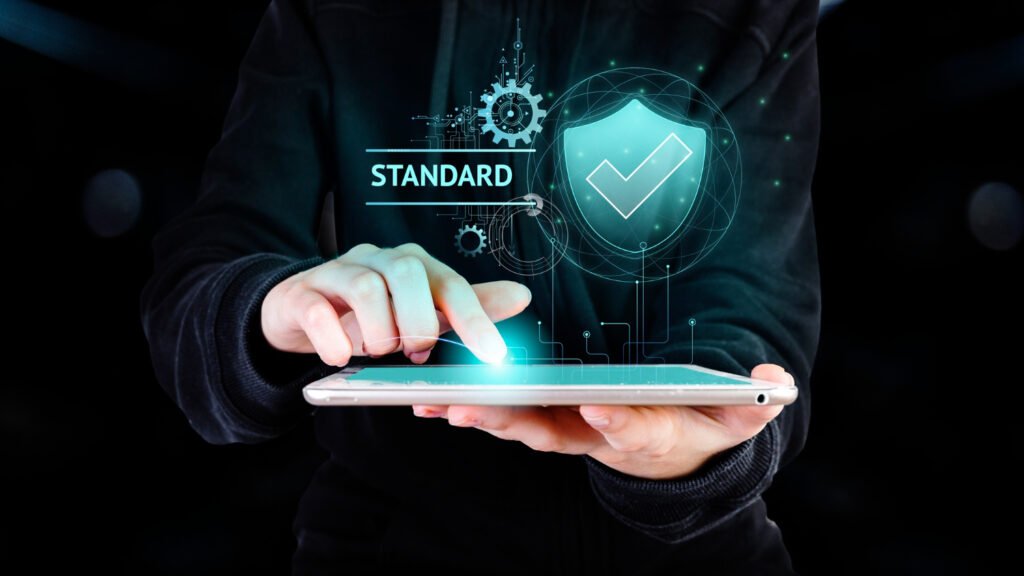HR platform: Introduction
In today’s fast-paced business landscape, organizations face increasing complexities in managing their human resources effectively. From recruitment and employee onboarding to payroll and performance management, HR departments need robust and efficient tools to handle these tasks seamlessly. This is where Human Resource Management Systems (HRMS), also known as HR platform, come into play. In this blog post, we will explore the advantages of HRMS in modern organizations, delving into how this comprehensive software solution streamlines HR operations for enhanced efficiency and productivity.
Understanding HRMS and Its Role in Modern Organizations

Human Resource Management Systems (HRMS) or HR platforms are integrated software solutions designed to streamline and automate HR processes within an organization. These systems provide a centralized database that consolidates all HR-related data, enabling HR teams to manage and access employee information, payroll, benefits, performance evaluations, and more from a single platform.
If you want to know more about SaaS-based website development then click read this post.
HR platform: What is HRMS?
HRMS, also referred to as Human Resources Information Systems (HRIS), is a comprehensive software solution that assists HR departments in managing employee-related tasks efficiently. It encompasses various modules to handle a wide range of HR functions, including recruitment, onboarding, attendance tracking, performance management, benefits administration, and compliance management.
The Evolution of HRMS: From Manual to Digital Solutions
Before the advent of HRMS, HR operations were often manual and paper-based, resulting in time-consuming and error-prone processes. With the rise of technology, HRMS emerged as a game-changer, offering automation, efficiency, and data accuracy.
Initially, HRMS primarily focused on administrative tasks like maintaining employee records, payroll processing, and attendance tracking. Over time, HRMS solutions evolved into more comprehensive platforms, incorporating advanced features such as talent management, employee self-service portals, analytics, and predictive insights.
The Crucial Role of HRMS in Today’s Business Landscape
In today’s dynamic business environment, the role of HRMS has become critical for organizations of all sizes. HRMS empowers HR departments to operate strategically, shifting their focus from mundane administrative tasks to strategic decision-making. By automating routine processes and providing real-time access to essential HR data, HRMS enhances operational efficiency and enables HR professionals to become valuable strategic partners within the organization.
The Advantages of HRMS in Modern Organizations

Improved Efficiency: Reducing Manual Tasks and Paperwork
One of the most significant advantages of HRMS is its ability to automate manual tasks and reduce paperwork. By streamlining processes like data entry, attendance tracking, and document management, HRMS frees HR professionals from repetitive tasks, allowing them to focus on strategic initiatives and employee engagement. The time and effort saved through automation can be reinvested in more value-added activities, ultimately boosting overall HR efficiency.
Time and Cost Savings: Automating Routine HR Processes
The automation capabilities of HRMS lead to significant time and cost savings for organizations. HR professionals spend less time on administrative tasks, enabling them to be more productive and efficient. Additionally, the reduction in manual errors and paperwork saves costs associated with rework and rectifications. HRMS eliminates the need for manual data entry and reduces the chances of data discrepancies, leading to substantial cost savings in the long run.
Enhanced Data Accuracy: Minimizing Errors and Inconsistencies
HRMS minimizes data discrepancies and errors by providing a single source of truth for all HR-related information. Employee data is entered once and updated in real time, ensuring accuracy and consistency across the organization. This data accuracy is essential for HR analytics and reporting, enabling data-driven decision-making. By eliminating data silos and manual data handling, HRMS ensures that HR professionals have access to reliable and up-to-date information, reducing the risk of making decisions based on outdated or inaccurate data.
Real-Time Reporting and Analytics: Gaining Actionable HR Insights
HRMS provides HR professionals with access to real-time reporting and analytics, offering valuable insights into various HR metrics and trends. Data-driven decision-making becomes more accessible as HR teams can analyze employee performance, workforce demographics, turnover rates, and other critical indicators. These actionable insights enable HR leaders to identify areas for improvement, make informed decisions, and develop effective HR strategies aligned with organizational goals.
Compliance and Security: Ensuring Data Privacy and Legal Adherence
Compliance with labor laws and data privacy regulations is a significant concern for HR departments. HRMS ensures adherence to legal requirements by automating compliance-related tasks. It helps manage employee data securely, restricts access to sensitive information, and generates audit logs to monitor system activity. With built-in security measures, HRMS protects against data breaches, ensuring the confidentiality of employee data and safeguarding the organization’s reputation.
The Impact of HRMS on Employee Engagement and Productivity

Empowering Employees: Self-Service Portals and Accessibility
HRMS empowers employees by providing self-service portals where they can access their personal information, update contact details, submit leave requests, and view pay statements. This self-service functionality enhances employee engagement and satisfaction, as employees can independently manage routine HR tasks without HR intervention. Empowered employees are more likely to feel valued and engaged, contributing to a positive work environment.
Transparent Communication: Bridging the Gap between Employees and HR
Effective communication is vital for fostering a collaborative work culture. HRMS facilitates transparent communication between HR professionals and employees through real-time updates, notifications, and feedback mechanisms. Employees can seek clarifications, raise concerns, and provide feedback within the HRMS platform, promoting a culture of open communication and trust.
Performance Visibility: Encouraging Goal Alignment and Recognition
HRMS enables goal setting and tracking, ensuring clear alignment between employee objectives and organizational goals. Regular performance evaluations within the system help employees understand their progress and areas for improvement. HRMS also allows managers to provide timely feedback, recognize employee achievements, and track performance trends. This visibility into employee performance fosters a culture of accountability and encourages employees to strive for excellence.
Learning and Development Opportunities: Nurturing Employee Growth
The training and development module of HRMS plays a crucial role in fostering a culture of continuous learning. By providing employees with access to a variety of learning resources, including e-learning courses and skill development programs, HRMS supports individual growth and professional development. Investing in employee training also demonstrates the organization’s commitment to its workforce’s success and encourages employee retention.
HR Platform: Workforce Planning with HR platforms
HRMS with predictive analytics capabilities can help organizations anticipate future talent needs and address skill gaps. By analyzing historical data and workforce trends, HRMS provides valuable insights into potential talent shortages or surpluses. Armed with this information, HR teams can proactively devise recruitment strategies, succession plans, and talent development initiatives to ensure a skilled and agile workforce.
HRMS for Smoother Onboarding and Offboarding

Seamless Onboarding: Accelerating New Hire Integration
HRMS simplifies and accelerates the onboarding process for new hires. It provides a digital platform where new employees can complete necessary paperwork, access training materials, and review company policies. By streamlining administrative tasks, HRMS allows HR professionals to focus on creating a positive onboarding experience and engaging new hires from day one.
Efficient Offboarding: Streamlining Employee Departures
During offboarding, HRMS ensures a smooth transition for departing employees. HR professionals can efficiently manage exit interviews, conduct knowledge transfers, and initiate the offboarding process with automated checklists. A well-organized offboarding process fosters a positive employee experience even during departure, which can impact the organization’s employer brand and reputation.
HR platforms & Payroll Management

Automated Payroll Processing: Ensuring Timely and Accurate Payments
HRMS automates payroll processing, ensuring timely and accurate salary payments for employees. The system calculates salaries, deductions, and taxes based on predefined rules and regulations, minimizing the chances of errors and delays. This automation not only saves time but also eliminates the need for manual intervention, reducing the risk of payroll discrepancies.
Benefits Administration: Streamlining Employee Benefits
HRMS simplifies benefits administration by providing a platform where employees can access and manage their benefits information. From health insurance to retirement plans, employees can view available options, make selections, and update preferences through the self-service portal. This self-service approach enhances employee satisfaction, reduces administrative burden, and minimizes errors in benefits administration.
Overcoming Challenges in HRMS Implementation

Employee Adoption and Training using HR platform
The successful implementation of HRMS requires effective change management and user adoption strategies. HR teams should communicate the benefits of HRMS to employees and provide comprehensive training to ensure they are comfortable using the system. By involving employees in the implementation process and addressing their concerns, organizations can foster a positive reception of HRMS.
Data Migration & Integration HR platform
Integrating HRMS with existing systems and migrating employee data can present challenges. HR teams must ensure data integrity during the migration process to avoid any loss or corruption of information. Seamless integration with other business applications, such as accounting software or time-tracking systems, is essential for ensuring smooth data exchange and workflow automation.
Scalability & Customization using HR platform
As organizations grow, their HR requirements evolve. HRMS should be scalable and customizable to accommodate changing needs and future expansion. The system should support the addition of new modules and functionalities as the organization’s HR processes evolve. A flexible HRMS allows organizations to tailor the platform to their unique requirements, ensuring a seamless fit with existing HR practices.
HR platform and Data Security

A HR Platform: Protecting Employee Data
Data security is paramount when dealing with employee information. HRMS should have robust security measures, such as encryption, secure access controls, and regular data backups, to safeguard sensitive employee data from unauthorized access or breaches. Compliance with data privacy regulations, such as GDPR and CCPA, is also critical to ensure data protection and maintain trust with employees.
Disaster Recovery and Business Continuity
HRMS should have robust disaster recovery mechanisms in place to ensure business continuity in the event of system failures or disasters. Regular data backups, redundancy measures, and contingency plans are essential for minimizing downtime and ensuring uninterrupted HR operations.

Conclusion
HRMS, or HR platforms, play a pivotal role in unlocking efficiency and driving productivity in modern organizations. By automating HR processes, providing real-time insights, and empowering employees, HRMS streamlines operations and enables HR professionals to focus on strategic initiatives. From streamlined onboarding to efficient payroll processing, HRMS optimizes various HR functions, ultimately contributing to employee engagement, talent development, and organizational success.
As organizations continue to embrace digital transformation, HRMS will evolve further, incorporating cutting-edge technologies like artificial intelligence and predictive analytics. Embracing the advantages of HRMS, organizations can nurture a skilled and engaged workforce, create a positive employee experience, and achieve their business goals in the ever-changing business landscape.
Experience the difference
Frequently Asked Questions (FAQs)
What is HRMS, and how does it differ from HRIS?
HRMS stands for Human Resource Management System, while HRIS stands for Human Resources Information System. Both terms are often used interchangeably, but HRMS typically refers to a more comprehensive system that includes modules for various HR functions, while HRIS may focus more on data management and information storage.
How does HRMS benefit organizations?
HRMS offers several benefits to organizations, including streamlined HR processes, increased efficiency, reduced paperwork, improved data accuracy, real-time reporting, enhanced employee engagement through self-service portals, and better compliance with labor laws and data privacy regulations.
Can HRMS be customized to suit an organization’s unique needs?
Yes, most HRMS solutions are customizable to align with an organization’s specific requirements. HR teams can configure the system to accommodate various HR processes, organizational structures, and industry-specific needs.
How secure is employee data within an HRMS?
HRMS providers implement robust security measures to protect employee data. This includes encryption, secure access controls, data backups, and compliance with data privacy regulations to ensure the confidentiality and integrity of sensitive information.
What challenges might organizations face during HRMS implementation?
HRMS implementation challenges may include employee adoption and training, data migration and integration with existing systems, scalability to accommodate future growth, and ensuring data security and compliance. Effective change management and strategic planning can help overcome these challenges and ensure a successful HRMS implementation.

HRMS providers implement robust security measures to protect employee data. This includes encryption, secure access controls, data backups, and compliance with data privacy regulations to ensure the confidentiality and integrity of sensitive information.